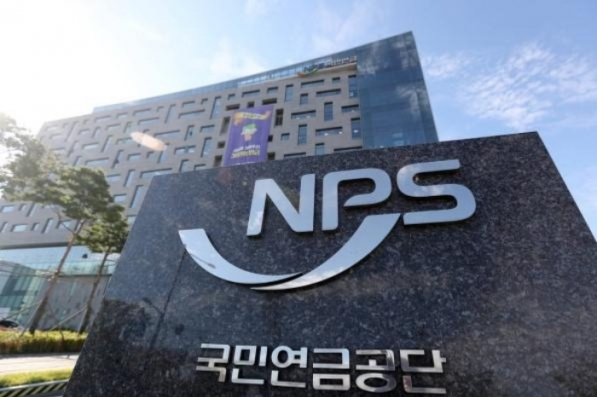NPS to step back from management of Hanjin KAL
Keeping the management position would restrict voting rights and additional investment, NPS says
By May 01, 2022 (Gmt+09:00)
LG Chem to sell water filter business to Glenwood PE for $692 million


Kyobo Life poised to buy Japan’s SBI Group-owned savings bank


KT&G eyes overseas M&A after rejecting activist fund's offer


StockX in merger talks with Naver’s online reseller Kream


Mirae Asset to be named Korea Post’s core real estate fund operator



National Pension Service (NPS) of South Korea has decided to shift its objective in holding shares of Hanjin KAL Corp., the parent company of Korean Air Lines Co., from "participation in management" to "simple investment." Through the shift, Hanjin KAL will be delisted from NPS' business management targets.
The change comes three years after NPS decided to execute its shareholder’s rights to participate in Hanjin KAL’s management in early 2019 when the late Korean Air Chairman Cho Yang-ho was facing an embezzlement trial. It was NPS’ first move to involve itself in business management after the pension fund adopted a stewardship code in July 2018 to improve the corporate governance of its investee companies.
NPS’ Fund Management Committee made this latest decision during its committee meeting on April 29. The world’s third-largest pension fund holds a 4.15% stake in Hanjin KAL as of April 1.
As of the end-2021, the company’s major shareholders include its Chairman Cho Won-tae and his affiliates with a 20.79% stake; activist fund Korea Corporate Governance Improvement Fund (KCGI) with 17.27%; Bando Engineering & Construction Co. with 16.89%; Delta Air Lines Inc. with 13.1%; state-run Korea Development Bank with 10.5%; and others. However, Korea’s Hoban Construction Ltd. became the second-largest shareholder of the company by taking over all of the shares owned by KCGI in March.
Under the simple investment objective, NPS can execute only basic shareholder rights such as attending shareholder meetings and exercising voting rights.
“We've decided to change the investment objective as keeping the shares with a management purpose imposes some restrictions, such as banning stakeholders with a 5% stake or more from exercising voting rights and buying additional shares for a certain period,” the Fund Management Committee said.
Under Korea’s Financial Investment Services and Capital Markets Act, institutional investors have three choices in investment purpose -- participation in management, general investment or simple investment.
Compared with simple investment, "general investment" enables shareholders’ more active influence on investee companies such as requesting companies’ management data and supporting changes in articles of association to improve corporate governance. General investment also allows filing shareholder derivative lawsuits and exercising rights on personnel affairs, including requesting dismissal of corporate executives.
In the committee meeting, the Korean non-government organization People's Solidarity for Participatory Democracy said NPS should choose a soft landing, with a change of the investment objective to general investment first.
However, some committee members from the business circle suggested the pension fund should adopt a simple investment position to best enhance Hanjin KAL’s profitability. NPS concluded that it will carefully watch the company’s management conditions with the change to simple investment.
In addition, the pension fund discussed three agendas during the committee meeting: to conduct research to limit its investment in the coal mining and coal-fired power industries; to outline a mid-term plan for investment in equities, bonds and alternative assets between 2023 and 2027; and to revise its guidelines for responsible investment activities.
Write to Jun-Ho Cha at chacha@hankyung.com
Jihyun Kim edited this article.
-
 Pension fundsNPS’ shareholder meeting vetoes cast pall on its profitability
Pension fundsNPS’ shareholder meeting vetoes cast pall on its profitabilityApr 20, 2022 (Gmt+09:00)
2 Min read -
 Mergers & AcquisitionsKorean activist fund KCIG to sell Hanjin KAL stake to local builder
Mergers & AcquisitionsKorean activist fund KCIG to sell Hanjin KAL stake to local builderMar 28, 2022 (Gmt+09:00)
2 Min read -
 Corporate restructuringNPS approves POSCO's split into holding firm, steelmaker unit
Corporate restructuringNPS approves POSCO's split into holding firm, steelmaker unitJan 24, 2022 (Gmt+09:00)
2 Min read -

-
 NPS launches stewardship responsible division
NPS launches stewardship responsible divisionJan 08, 2019 (Gmt+09:00)
1 Min read


